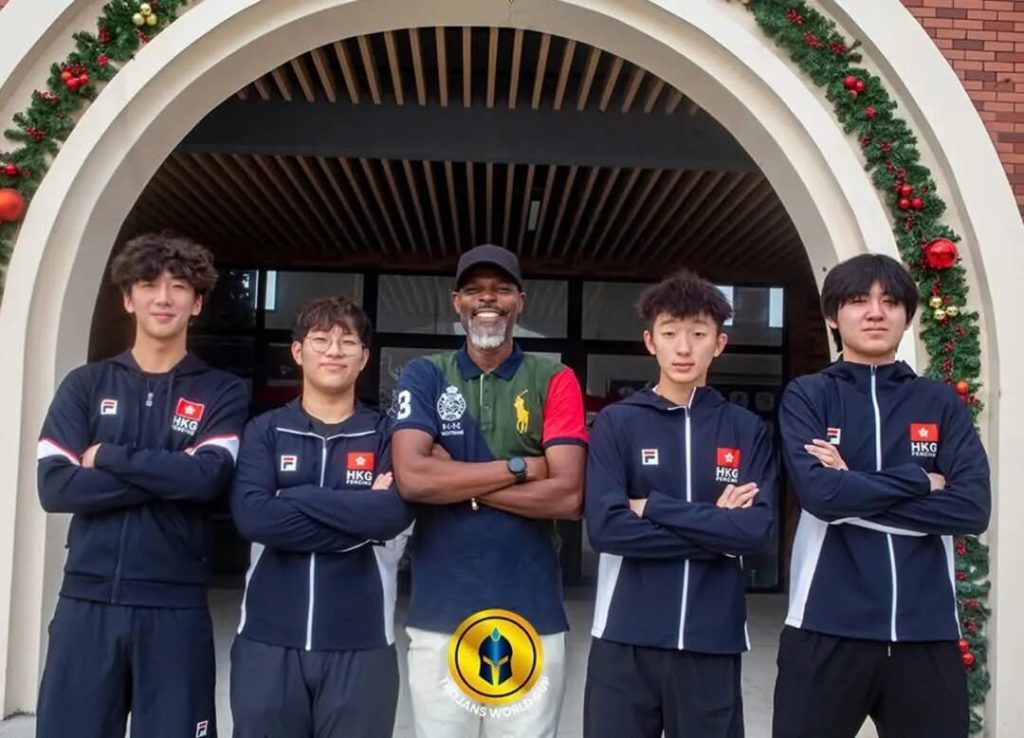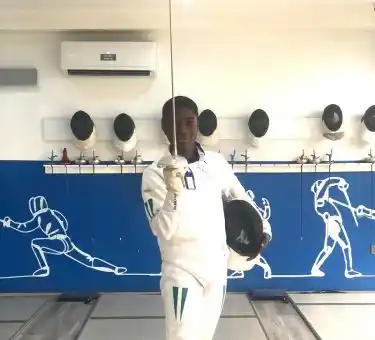
Aiyenuro Hails Nigeria’s Fencing World Cup Debut
In a historic moment for Nigerian sports, the recently concluded Fencing World Cup in Lagos has been hailed as a groundbreaking event for Sub-Saharan Africa. This two-day competition, held on December 14 and 15, marked Nigeria’s debut as the first country in the region to host such a prestigious international fencing tournament. Pat Aiyenuro, president of the British Fencing Association, expressed her enthusiasm about the event’s significance, stating that it signals a new era for fencing in Nigeria and beyond.
Significance of the Event
The Fencing World Cup attracted participants from ten nations, including renowned fencing powerhouses such as Egypt, Saudi Arabia, and Hong Kong. Aiyenuro emphasized that this level of competition had previously been limited to countries like Egypt and Tunisia. Nigeria’s successful hosting marks a pivotal moment for the sport in Africa. “This is the first Sub-Saharan competition of such quality,” she remarked, underscoring the importance of this achievement.
During her interview with PREMIUM TIMES, Aiyenuro highlighted the potential of this event to reshape perceptions of Nigeria on the global sports stage. “I think it’s good to bring people into Nigeria to see the reality that we are a force to be reckoned with,” she stated. The World Cup not only showcased Nigeria’s organizational capabilities but also attracted interest from other countries keen on participating in future events hosted by Nigeria.
Grassroots Development Initiatives
Aiyenuro stressed the need for grassroots development as part of her vision for the sport’s growth in Africa. She noted that establishing fencing programs in schools is crucial for nurturing young talent. “We need to work more at the grassroots because that’s where our talents will be coming from,” she explained. This commitment aims to make fencing more accessible across Nigeria and its neighboring countries.
In her role as a leader within the British Fencing Association, Aiyenuro has promoted fencing globally and within Africa. She expressed optimism about Nigeria’s potential to compete at higher levels, including aspirations for Olympic participation in future games. “Eventually, we want Nigeria to get to the Olympics in fencing,” she asserted. Her belief in Nigerian talent is evident as she noted ongoing efforts to develop infrastructure and coaching facilities within the country.
Voices from Nigerian Fencers
The Nigerian Fencing Federation’s president, Adeyinka Samuel, echoed Aiyenuro’s sentiments regarding the importance of this event. He acknowledged challenges faced during planning but emphasized that hosting the World Cup has positioned Nigeria favorably for future international competitions. “We’re very likely to get more competitions,” he stated confidently.
Wisdom Okanlawon, a prominent young fencer leading Nigeria’s team at the World Cup, expressed his eagerness to represent his country on such a significant platform. “I want to show the world that Nigeria also has good fencers,” he said ahead of the tournament. His commitment reflects broader aspirations of Nigerian athletes who aim to elevate their nation’s status in international fencing.
International Recognition
The presence of international dignitaries at the event further underscored its importance. The International Fencing Federation appointed Donald Anthony as overseer of the tournament, while Peter Smith from the Commonwealth Fencing Federation monitored Nigeria’s capability to host future championships. Their involvement signifies growing recognition of Nigeria’s potential within global fencing circles.
Aiyenuro’s enthusiasm was palpable as she discussed future collaborations between British and Nigerian fencing federations aimed at enhancing training and competition opportunities. “We want to try and get more referees qualified and also maybe to a coaching program so that we can upskill our coaches,” she explained. Building a robust coaching framework is essential for developing champions.
A Bright Future Ahead
The successful execution of this World Cup has laid a strong foundation for Nigeria’s aspirations in fencing. With plans already underway for upcoming tournaments—including potential hosting of the African Senior Championships—Nigeria is poised to become a significant hub for fencing in Africa. Aiyenuro believes that with continued investment in infrastructure and talent development, Nigeria can emerge as a leading force in African fencing.
As spectators celebrated athletes’ performances during this landmark event, it became clear that this was just the beginning for Nigerian fencing. The enthusiasm generated by hosting such an international tournament could inspire a new generation of fencers eager to make their mark on both regional and global stages.
In conclusion, Aiyenuro’s praise for Nigeria’s inaugural Fencing World Cup reflects not only a celebration of achievement but also a call to action for continued growth and development within the sport across Sub-Saharan Africa. The successful hosting of this event serves as a beacon of hope and opportunity for aspiring athletes and sports enthusiasts alike.


